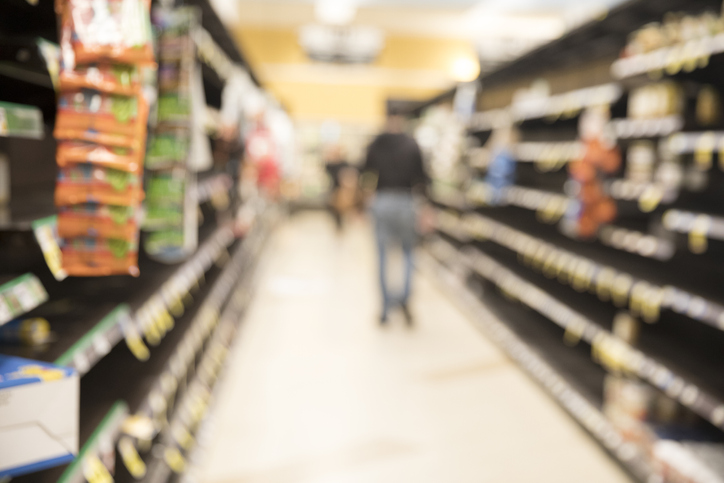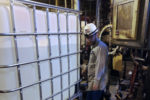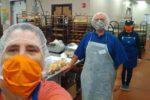
UFCW International President Marc Perrone spoke with MSNBC’s Stephanie Ruhle about the compensation and protection won by grocery and retail employees working during the coronavirus outbreak so far, and the need to extend those increases to other companies.
[vc_video link=”https://www.youtube.com/playlist?list=PLujTLCBfbkT-IWIlEjc4A5ItCXZZ_Cqkm”]
STEPHANIE RUHLE: As more cities shut down in the wake of the coronavirus, businesses deemed essential, like pharmacies and supermarkets, are still up and running with workers, many at minimum wage working really long days at the front lines of this pandemic.
The United Food and Commercial Workers with nearly 1.3 million members across the food industry in the United States and Canada, has been working with major companies like Stop & Shop, Pepsi, Kraft Heinz, Campbell’s Soup, Safeway, and Rite Aid to implement new policies aimed at keeping those workers safe.
Joining me now is Marc Perrone, he’s president of the United Food and Commercial Workers International Union. Marc, we are seeing more cases of workers who are getting sick. Do we need more protection for them?
MARC PERRONE: Yes, Stephanie, we really do. I can’t stress that enough. I think it is in fact difficult in order to do that, because the personal protection equipment is just not available unless you’re a first responder. And, as seen earlier this morning on Morning Joe, there will be transmission points for this virus if we’re going to stop it. We believe those transmission points will be grocery stores, pharmacies, some of those essential businesses that will have to remain open.
RUHLE: We know some of the bigger chains can afford to do it, but should these people be getting increased wages, given what they’re putting themselves through?
PERRONE: Well, we ultimately believe that they should be getting increased wages, because of the amount of increase of sales per man hour that’s taking place. So, the shareholders and the corporations are doing really well through that process. And those workers are actually delivering that increased productivity. And that’s why we ultimately believe that they should get it and have an opportunity to share in some of that.
We also think that because that is taking place, the owners and the shareholders have a responsibility, when it’s available, to provide that personal protection equipment. Or at least, when it’s not available, to provide screens, plexiglas screens up on each checkstand so it gives them more protection than they presently have right now. We think that’s important and we think it’s critical, and some of our employers have started to do that systematically through their stores.
RUHLE: Whole Foods and its owner Amazon have faced major backlash on their policies towards workers. Whole Foods even saying that those who could not work peak hours could lose their full-time status and health benefits. Have they changed their policies in any meaningful way in the last week or so?
PERRONE: Whole Foods is a non-union corporation owned by Amazon, and I do believe it’s Amazon’s position as well as Whole Foods’ position to maximize their profits right now, even at the expense of the workers. I think it’s a terrible thing to do. I think it’s irresponsible. I think it’s irresponsible as it relates to what they’re doing for their customers.
If people believe, for instance, they can’t go to work, because if they don’t go to work, they’re going to lose their health care, here’s what’s going to happen. They’ll show up at work, whether or not they’re sick or not sick. And if that takes place, it’s just like I said earlier, it could be a transition point that’s going to take place at some of these stores.
That’s the reason why we’re fighting so hard to make sure workers who are impacted by the virus, in other words, they have symptoms, that they can ultimately themselves take themselves out of the public and protect the customers that they’re wanting to serve as well as their co-workers that are serving us, to make sure we have food on the shelves and that we’ve got everything available to us.
It’s the same way with the packing and food processing sections that we are connected with. Those workers are working in close proximity to others, and it’s necessary for them to be able to take themselves out of the assembly line on positions, so that they ultimately can protect each other. because many of those places are locate in more rural parts of the United States where health care systems are already stretched to the limit, as well as there’s not as many workers in those outlying areas that they can draw upon to replace very quickly.
RUHLE: Thank you so much.



